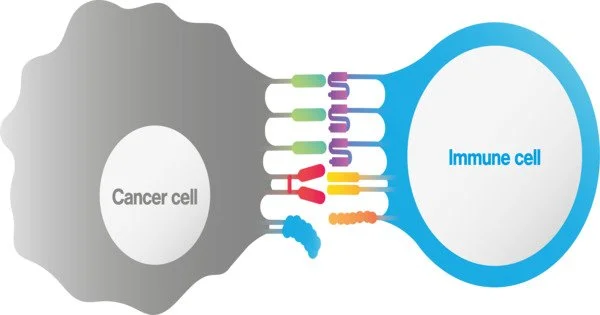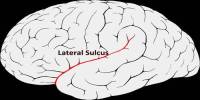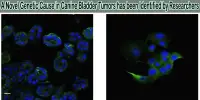An immunological synapse (also known as an immune synapse) is the interface between an antigen-presenting cell or target cell and a lymphocyte such as a T/B cell or Natural Killer cell in immunology. It is a specialized structure that forms at the junction of an immune cell, such as a T cell, and an antigen-presenting cell (APC), such as a dendritic cell or a B cell. The interface was named after the neuronal synapse, which it shares the primary structural pattern with.
An immunological synapse is made up of molecules involved in T cell activation that form typical patterns called activation clusters. Immunological synapses are the focus of a lot of ongoing research. This structure is important in the immune response because it facilitates communication and interactions between immune cells.
The formation of an immunological synapse involves a series of coordinated steps:
- Recognition of Antigen: The recognition of an antigen by the T cell receptor (TCR) on the surface of a T cell starts the process. Typically, antigens are peptides derived from pathogens or abnormal cells.
- Antigen Presentation: Major histocompatibility complex (MHC) molecules on the surface of the APC present the antigen to the T cell. MHC class I molecules target CD8+ cytotoxic T cells, whereas MHC class II molecules target CD4+ helper T cells.
- Adhesion: Adhesion molecules such as integrins and selectins aid in the stabilization of the T cell-APC interaction.
- Formation of the Central Supramolecular Activation Cluster (cSMAC): The central region of the immunological synapse, known as the cSMAC, is characterized by the accumulation of TCRs and associated signaling molecules. This centralization is thought to enhance signal transduction.
- Surrounding Peripheral Supramolecular Activation Cluster (pSMAC): The pSMAC surrounds the cSMAC and contains adhesion molecules, which aid in the synapse’s stability.
The immunological synapse is required for effective and targeted immune responses. It enables precise signaling between immune cells, ensuring that the immune system reacts appropriately to antigens presented. Immunological synapse formation or function dysregulation can have consequences for a variety of immune-related diseases and conditions.
















